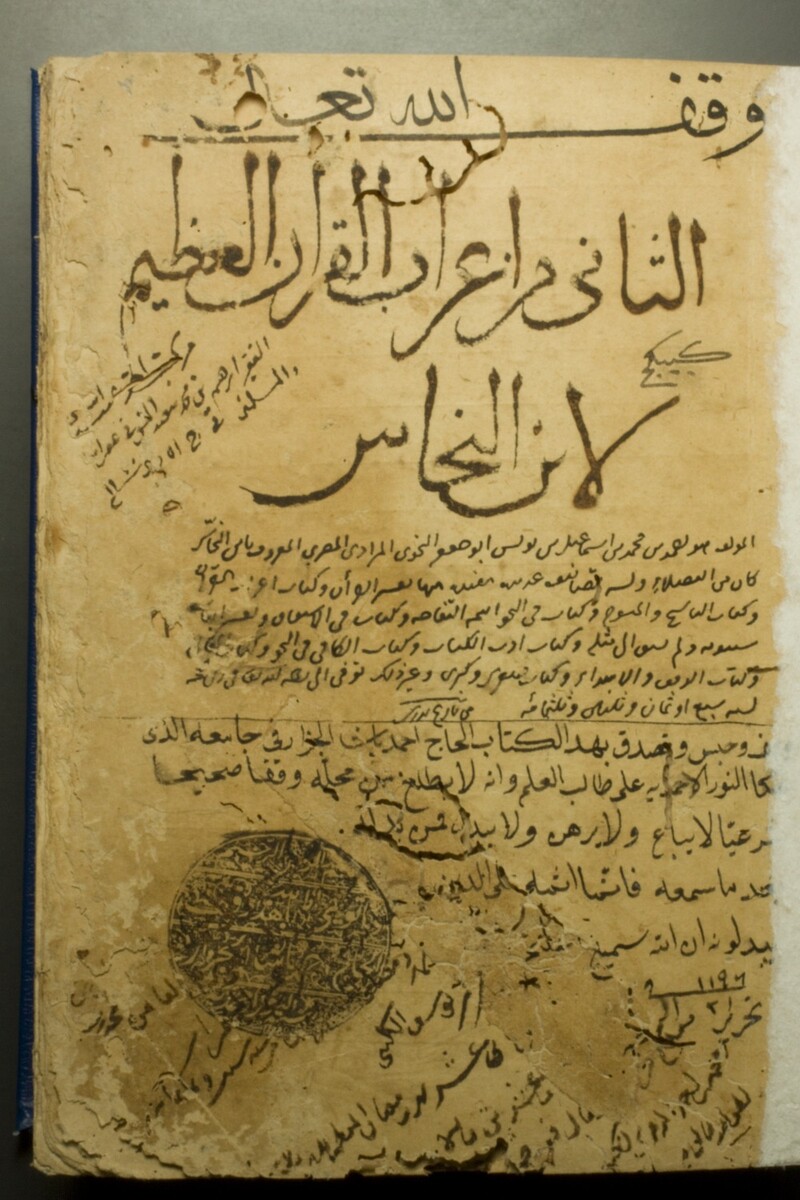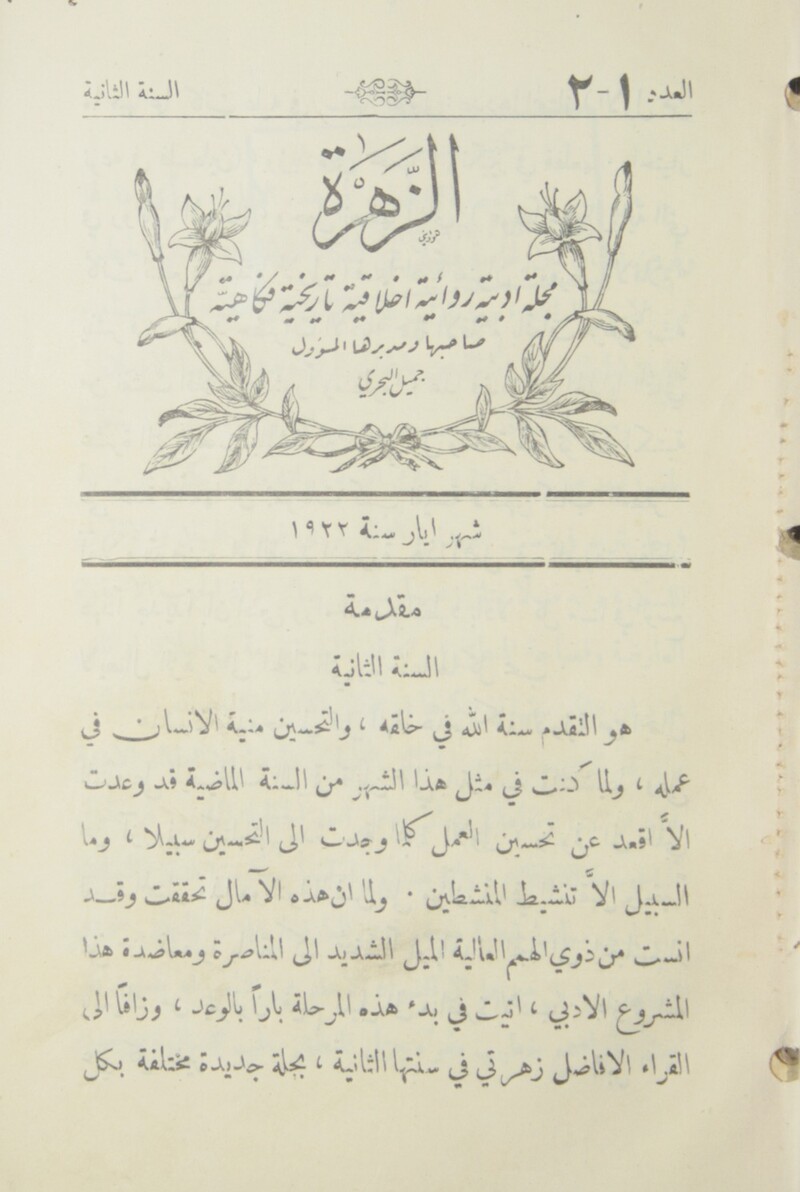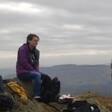Arts and Culture 13 May 2014

Tenth-century manuscript from the library of the al-Jazzar Mosque in Akka.
Endangered Archives ProgrammeA project run by the British Library, intended to help preserve and extend access to historically significant archives around the world, will allow researchers and the general public to access ancient and valuable manuscripts from Palestinian institutions.
The Endangered Archives Programme (EAP) aims to “contribute to the preservation of archival material that is in danger of destruction, neglect or physical deterioration worldwide.” It does this by allocating grants to local organizations to locate and preserve actual manuscripts, and to create digital copies which can be freely viewed on the project’s website.
In Palestine, three grants have been awarded to Qasem abu Harb of the Council for British Research in the Levant for work on archives at the al-Aqsa Mosque Library in Jerusalem and the library of the al-Jazzar Mosque in Akka.
At the al-Aqsa Mosque, a major grant allowed the digitization of the library’s periodicals collection, containing Palestinian newspapers and magazines including, according to the EAP:
20 sets of historical materials that document the history of Palestine in the first half of the 20th century … The newspapers provide access to primary sources about the Arab nationalist movement and Palestinian reaction towards Jewish immigration and … cover many important historical events and political movements, such as the Balfour declaration, the al-Buraq events of 1929, the al-Qassam revolution of 1931 … the 1936 strike, 1936-1939 revolution, and British policy against Arab leaders
The EAP states that digitizing the collection was important not only because of the vulnerability of many historic documents, such as poor paper quality, “but also because of the location of the al-Aqsa Mosque Library in the occupied territory and the unstable political situation in East Jerusalem.”
A second collection from the al-Aqsa Mosque comprises historical manuscripts dating from the twelfth to the nineteenth centuries on subjects including the Quran, Islamic law, the Arabic language, astronomy and medicine.
“Digitization of these unique materials” was, according to the EAP, “a top priority,” and so far 119 of the al-Aqsa Library’s 2,000 manuscripts have been copied (representing 33,875 pages) and the originals conserved.

A rare Palestinian newspaper edition from May 1922.
Endangered Archives ProgrammeThe third Palestinian archive on which Harb and the EAP have worked consists of historic manuscripts at the al-Jazzar Mosque Library in Akka, some of them dating back to a thousand years and covering topics ranging from mathematics and logic to literature and Sufism. Fifty-four manuscripts from al-Jazzar, comprising 17,965 pages, have been digitized and made publicly available.
As with the al-Aqsa collections, the urgent need to preserve the documents highlights the threat posed by Israeli aggression and neglect to Palestinian heritage. The Akka manuscripts, according to the EAP, “provide a unique insight into centuries of Arabic culture in Palestine,” and conserving the collection has become a pressing need due to “periods of political unrest, and more recently through vandalism and theft.”






Comments
'Abandoned' [What a Joke!] Property-Books
Permalink Barry M Watson replied on
What about the Israeli National Library in Jerusalem holding approximately 6,000 Palestinian owned books in Arabic marked “AP” for “Abandoned Property,”
Are the 'friendly Israelis' going to cooperate in this project?
Yes - Electronic Intifada has covered the issue you mention...
Permalink Sarah Irving replied on
… including in this article by Arwa Aburawa: http://electronicintifada.net/content/great-book-robbery-1948/9104
The EAP should look into
Permalink Huda Giddens replied on
The EAP should look into preserving the Khalidi Library in Jerusalem - immediately!!
Why not put together a bid?
Permalink Sarah Irving replied on
If you look at the information on the EAP’s website, it does not determine which libraries will be supported itself: bids for support should come from conservators or organisations within the country where the library is held. So, as this article states, the bids for the Al-Aqsa and Al-Jazzar libraries came from Mr Qasem Abu Harb and the CBRL. If there are people at the Khalili Library who feel as the commentor does, they need to put together a bid with Harb or other capable people in Palestine and apply to the EAP themselves.